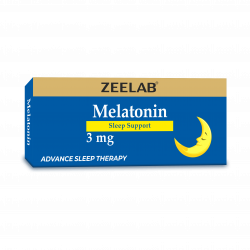Magnesium for Sleep – Benefits, Dosage & Best Supplements


Many people struggle with sleep issues, and one natural remedy that’s gaining attention is magnesium for sleep. This essential mineral plays a crucial role in regulating mood, stress, and relaxation—all of which affect how well you sleep. In this blog, we’ll explore how magnesium can improve your sleep quality, its benefits, how to use it, and important precautions.
How Does Magnesium Help You Sleep?
Magnesium supports sleep by regulating neurotransmitters that calm the nervous system. It activates the parasympathetic nervous system to promote relaxation.
- It helps the brain produce melatonin, the sleep hormone.
- It controls cortisol levels, which reduces stress.
- It binds to GABA receptors—helping the brain slow down and prepare for rest.
In short: Magnesium signals your body it’s time to relax and sleep.
What Are the Sleep Benefits of Magnesium?
Using magnesium for sleep can offer several noticeable benefits, especially for people facing sleep difficulties:
- Improves sleep quality: Leads to deeper, more restful sleep.
- Reduces insomnia symptoms: May help people fall asleep faster and stay asleep longer.
- Decreases stress and anxiety: Calms the nervous system, reducing mental chatter.
- Eases restless leg syndrome: Magnesium can help relax muscles and reduce twitching.
- Supports healthy sleep cycles: Regulates circadian rhythms through melatonin production.
Which Forms of Magnesium Are Best for Sleep?
Not all types of magnesium are equally effective for sleep. Here are a few types commonly used:
- Magnesium glycinate: Calms the body and is easy on the stomach.
- Magnesium citrate: Helps with digestion and mild sleep support.
- Magnesium L-threonate: Known to cross the blood-brain barrier and support brain function.
- Magnesium oxide: Less bioavailable, more often used for constipation than sleep.
Magnesium glycinate is often considered the most effective and well-tolerated for sleep support.
Also Read - Trouble Sleeping? These Vitamins and Minerals May Help
How Much Magnesium Should You Take for Better Sleep?
Recommended intake varies by age and gender, but for adults:
| Gender | Daily Recommended Intake |
|---|---|
| Men | Around 400–420 mg/day |
| Women | Around 310–320 mg/day |
To improve sleep, most people benefit from an evening dose of 200–400 mg, but it's essential not to exceed the recommended limit. Start with a low dose and monitor your body's response.
What Is the Best Time to Take Magnesium for Sleep?
Magnesium for sleep works best when taken 30 to 60 minutes before bedtime. This timing allows the mineral to be absorbed and begin calming your nervous system.
Taking magnesium on an empty stomach may improve absorption, but it can cause stomach upset for some. In such cases, take it with a light evening snack.
Also Read - Ayurvedic Medicine for Restful Sleep
Can Magnesium Be Taken Every Night for Sleep?
Yes, magnesium can be taken daily as part of your bedtime routine. It is generally safe for long-term use, especially in natural or food-based forms. However, long-term high doses without supervision can lead to imbalances or side effects like diarrhea, nausea, or abdominal cramps.
If using supplements, it’s wise to take occasional breaks and check in with a healthcare provider.
Are There Any Precautions When Using Magnesium for Sleep?
Yes. While magnesium is usually safe, you should keep these points in mind:
- Avoid overuse: Too much can cause diarrhea or affect kidney function.
- Kidney issues: People with kidney disease should avoid magnesium supplements.
- Medication interactions: It may interfere with antibiotics, blood pressure medications, or muscle relaxants.
Consult your doctor before starting any new supplement.
Also Read - Best Magnesium Supplement In India
Frequently Asked Questions
Q. Does magnesium help you fall asleep faster?
A. Yes. Magnesium calms the nervous system and promotes melatonin release, helping you fall asleep faster.
Q. Is magnesium safe to use every night?
A. Generally yes, but stick to the recommended dose and consult your doctor if using it long-term.
Q. What foods are rich in magnesium?
A. Leafy greens, nuts, seeds, whole grains, bananas, and dark chocolate are good sources.
Q. Can magnesium improve deep sleep?
A. Yes. It helps you reach the deep, restorative stage of sleep by reducing stress and promoting relaxation.
Q. How quickly does magnesium improve sleep?
A. Most people feel effects within a few days to a week of regular use.
Conclusion
Using magnesium for sleep is a safe and natural way to support better rest. From calming your brain to helping regulate melatonin, this mineral addresses multiple factors that disturb sleep. While it’s effective for many, results vary by individual. Be consistent, monitor your body’s response, and consult a professional if you have existing health conditions. A small dose of magnesium might be the sleep-supporting solution your body needs.
Recent Blogs
Disclaimer : Zeelab Pharmacy provides health information for knowledge only. Do not self-medicate. Always consult a qualified doctor before starting, stopping, or changing any medicine or treatment.



















 Added!
Added!